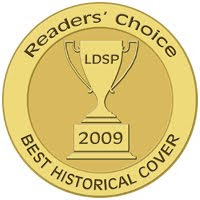"And in the fourth watch of the night Jesus went unto them, walking on the sea.
"And when the disciples saw him walking on the sea, they were troubled, saying, It is a spirit; and they cried out for fear.
"But straightway Jesus spake unto them, saying, Be of good cheer; it is I; be not afraid.
"And Peter answered him and said, Lord, if it be thou, bid me come unto thee on the water.
"And he said, Come. And when Peter was come down out of the ship, he walked on the water, to go to Jesus.
"But when he saw the wind boisterous, he was afraid; and beginning to sink, he cried, saying, Lord, save me.
"And immediately Jesus stretched forth his hand, and caught him, and said unto him, O thou of little faith, wherefore didst thou doubt?"
Apparently, I still have faith on my mind. Peter didn't suffer from "blind faith;" he knew that Jesus could and would let him walk on the water. And he was doing fine until he let himself be distracted. So, even strong faith can waver if we take our eyes off the Savior and start worrying about what's going on around us.
In his October 2010 conference talk, Elder Richard G. Scott offered some ways that we can keep focused on the Lord when we are exercising our faith:
- Trust in God and in His willingness to provide help when needed, no matter how challenging the circumstance.
- Obedience to His commandments and a life that demonstrates that He can trust you.
- Sensitivity to the quiet promptings of the Holy Spirit.
- Courageous implementation of that prompting.
- Patience and understanding when God lets you struggle to grow and when answers come a piece at a time over an extended period.
To help calm our fears when we see "the wind boisterous" in the world around us, Elder Scott promises:
"Satan's increasing influence in the world is allowed to provide an atmosphere in which to prove ourselves. While he causes havoc today, Satan's final destiny was fixed by Jesus Christ through His Atonement and the Resurrection. The devil will not triumph. Even now he must operate within the bounds set by the Lord. He cannot take away any blessing that has been earned. He cannot alter character that has been woven from righteous decisions. He has no power to destroy the eternal bonds forged in the holy temple between a husband, wife, and children. He cannot quench true faith. He cannot take away your testimony. Yes, these things can be lost by succumbing to his temptations. But he has no power in and of himself to destroy them."
I find this promise to be a tremendous boost to my faith. Sometimes it does seem like Satan is winning, in control. What a peaceful feeling to be reminded that he cannot win. Jesus has already taken care of that. I think knowing this makes it easier to ignore the distractions around us that try to tell us we can't, or it's impossible, and allows us to keep our focus on the Savior.




